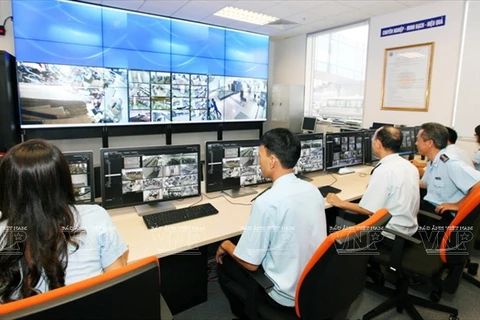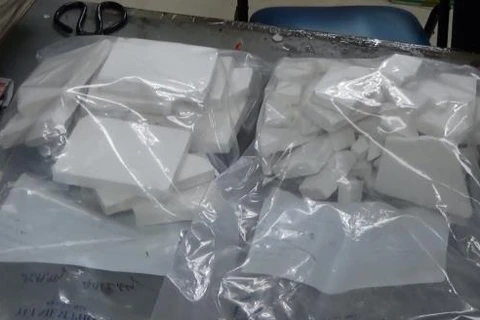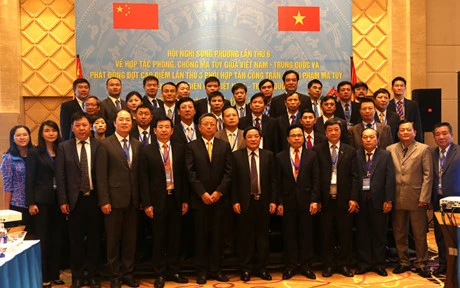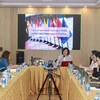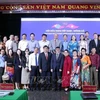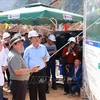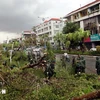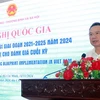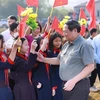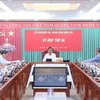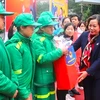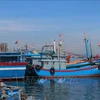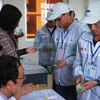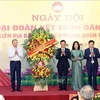Lang Son (VNA) – The People’s Court of the northern border province of Lang Son has pronounced two capital and two life sentences in a drug trafficking case involving 162 bricks of heroin that weigh over 60kg in total.
According to the indictment, Lang Son’s police received on August 14, 2012, a request from police of the Chinese province of Guangxi to identify the traffickers of 162 heroin bricks hidden on a dragon fruit truck.
The vehicle with plate number 57M-3013 travelled from Vietnam and parked at Tianyuan Terminal in Guangxi.
Nguyen Van Quynh (54 years old) and his wife, Nguyen Phuong Lan (50), were found to have directly transported the drug. They resided in the province’s Lang Son city.
Others involved in the case are Do Ngoc Oanh (49), Tran Thi Hien (51), both live in Hanoi, and Vu Thi Hoa (46). Hoa, who lived in Lang Son city, was also charged with giving bribes.
At the first instance trial, held from July 28 to August 1, all of the defendants pleaded guilty.
While Hien and Hoa were sentenced to death, Lan and Oanh received life imprisonment, and Quynh will spend 20 years in prison.-VNA

